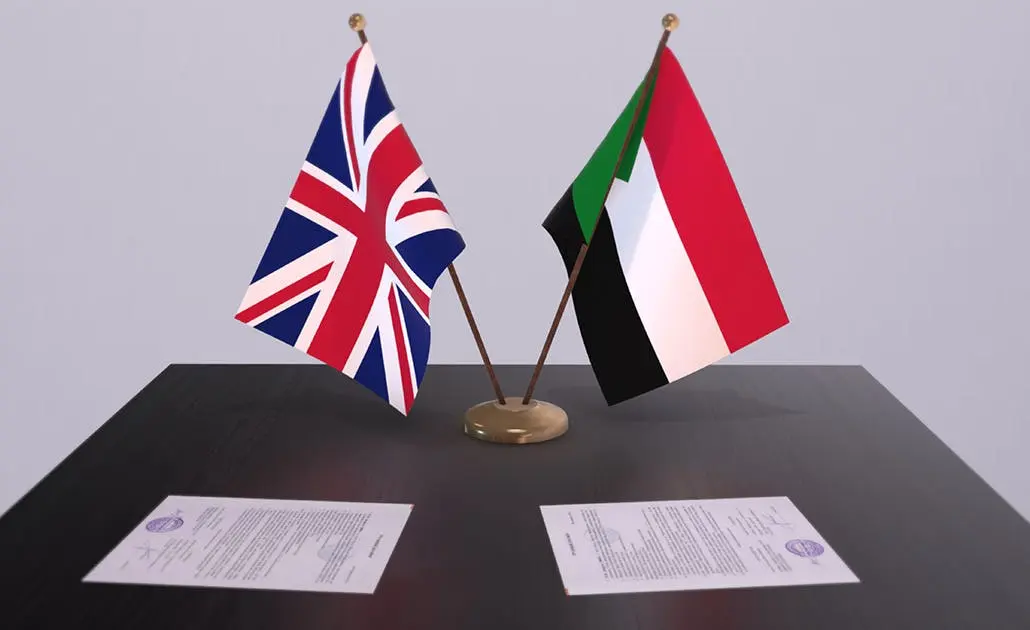Avoiding Double Taxation: UK-UAE Tax Treaty Essentials for Business Owners

The UAE has become an increasingly attractive business destination for UK entrepreneurs and agency owners. With its strategic location, business-friendly environment, and historically low tax rates, it's no wonder many are considering expanding operations or relocating entirely to the Emirates.
But here's what catches many business owners off guard: navigating the tax implications of operating across both jurisdictions. Without proper planning, you could find yourself paying tax on the same income in both countries—or worse, missing out on legitimate relief mechanisms designed to prevent exactly this situation.
The UK-UAE Double Tax Treaty, in force since 2016, provides a framework to avoid double taxation and clarify your obligations in both countries.
Here’s everything you need to know to make informed decisions about your cross-border business operations.
The Changing Tax Landscape
Understanding what you're working with in each jurisdiction is crucial before diving into treaty specifics. The tax environment in both countries has evolved significantly in recent years.
The UAE has traditionally been a zero-tax haven for most types of income—personal salaries, capital gains, rental income, and inheritance remain tax-free. However, since June 2023, the UAE introduced a 9% federal corporate tax on business profits exceeding AED 375,000 (approximately £80,000). While this marks a shift from the complete zero-tax policy, rates remain highly competitive compared to the UK.
Meanwhile, the UK operates a comprehensive tax system where residents face tax on worldwide income. Corporate tax reaches 25% on profits over £250,000, income tax can hit 45%, and dividend tax tops out at 39.35%. For UK business owners considering UAE operations, this creates both challenges and significant planning opportunities.
Who Can Use the Treaty?
The treaty only protects tax residents of either the UK or UAE, making residency determination crucial for your planning strategy.
Determining Your Tax Residency
UAE Tax Residency
Auto UK Tax Residency
Spend more than 183 days annually in the UAE
Spend more than 183 days in the UK
Primary residence and financial interests in the UAE
Only home in UK for 91+ days and use it 30+ days
UAE/GCC national with residency visa, 90+ days presence, and primary UAE ties
Work full-time in the UK
The UK uses a more complex Statutory Residence Test with automatic resident, automatic overseas, and sufficient ties components. If you're spending significant time in both countries, the sufficient ties test considers your connections to the UK—family, accommodation, work, and time spent.
What happens if you qualify as resident in both countries?
The treaty includes tie-breaker rules that look first at where you have a permanent home, then your centre of vital interests (where your personal and economic life is centred), your habitual abode, and finally your nationality. If these don't resolve the issue, the tax authorities negotiate your status directly.
How Income Gets Taxed Under the Treaty
The treaty specifies which country gets to tax different types of income, preventing the same income from being taxed twice. Here's how it works for the main income types business owners encounter:
Business Profits and Permanent Establishments
The general rule is straightforward: you're taxed where your business operates. A UK agency pays UK corporation tax on its UK profits. However, if you establish a permanent establishment (PE) in the other country—like opening a Dubai office—that country can tax profits specifically attributable to that PE.
A PE isn't just any business activity. It requires a fixed place of business like an office, branch, factory, or construction site lasting over 12 months. Simply visiting clients or attending meetings doesn't create a PE, but maintaining a regular workspace or having employees with authority to sign contracts might.
Consider this example: A Manchester-based digital agency opens a permanent Dubai office to serve Middle Eastern clients. The UK profits remain subject to UK corporation tax, while profits generated by the Dubai office face UAE corporate tax (if they exceed the AED 375,000 threshold). The treaty ensures these profits aren't taxed twice.
Employment Income Across Borders
Employment income follows a simple principle: it's taxable where you perform the work. However, the treaty includes a crucial 183-day rule. If you work in the other country for less than 183 days per year, you're only taxed in your country of residence—provided your employer isn't resident in the work country and doesn't pay you through a PE there.
This creates interesting planning opportunities. A UK-resident agency owner can work up to 182 days in the UAE without triggering UAE tax liability on their employment income. Similarly, UAE residents can work short-term projects in the UK without facing UK employment taxes.
Investment Income: Dividends, Interest, and Royalties

This allocation generally favours UAE residents receiving UK-sourced investment income, as the UAE doesn't tax personal investment income. Conversely, UK residents receiving UAE investment income will pay UK tax rates.
Capital Gains: Location Matters
Capital gains taxation depends heavily on what you're selling and where it's located. Real estate gains are always taxed where the property sits—sell a London property and you'll pay UK capital gains tax regardless of your residency. Shares that derive their value primarily from real estate follow the same rule.
Business assets sold through a PE are taxed where the PE operates, while other assets are generally taxed in your country of residence. Here's where the UAE's zero capital gains tax policy creates significant advantages—most asset sales by UAE residents avoid capital gains tax entirely, except for UK real estate.

What To Do for Cross-Border Operations
Residency Management
Your residency status drives everything else, so careful management is essential. If you're spending time in both countries, day counting becomes crucial—but it's not just about the numbers. Documenting where your centre of vital interests lies through family home location, main bank accounts, and primary business activities helps establish your position clearly.
Major changes like relocating or restructuring your business require understanding the residency implications before making moves. The timing of such changes can significantly impact your tax position.
Business Structure Considerations
You essentially have two main approaches: operating as a single UAE entity with a UK PE, or maintaining separate entities in each country. The single entity approach is simpler administratively but may trigger UK tax on UAE profits. Separate entities provide cleaner tax allocation but require more complex management and careful attention to transfer pricing between related companies.
Whatever structure you choose, ensure any transactions between related entities reflect arm's length pricing. Both HMRC and UAE authorities are increasingly focused on transfer pricing, and getting this wrong can result in significant adjustments.
Income Optimisation
The character and timing of income can be optimised across jurisdictions. In the UAE, personal income remains tax-free, making salary extraction attractive for owners. In the UK, dividend optimisation might be preferable depending on your circumstances.
Consider where services are actually delivered. If possible, structure operations so that services are provided from the most tax-efficient jurisdiction while maintaining genuine business substance.
Accessing Treaty Benefits
Treaty benefits aren't automatic—you need to actively claim them with proper documentation. The process starts with obtaining a Tax Residency Certificate (TRC) from either HMRC in the UK or the Federal Tax Authority in the UAE. This legal document confirms your tax residency status and is essential for claiming treaty relief.
You'll also need to complete declaration forms specifying the income type and treaty provision you're claiming, along with supporting documentation like contracts, financial statements, and proof of residency. Submit these to the relevant tax authority along with completed application forms.
If you face taxation that doesn't align with the treaty, you can request resolution through the Mutual Agreement Procedure within three years of notification. This involves bilateral negotiation between the UK and UAE tax authorities to resolve disputes.
Avoid Common Mistakes
Don't assume everything in the UAE remains tax-free. The corporate tax introduction means UAE operations may now face tax liability, and proper planning is required to optimise your position.
Start the documentation process early. Without proper TRCs and supporting evidence, you can't claim treaty relief. The bureaucratic wheels turn slowly, so begin well before you need the protection.
Be careful about creating unintended permanent establishments. Regular business activities, maintaining offices, or having employees with contracting authority can trigger PE status and unexpected tax liabilities.
Consider the timing of major changes carefully. Relocations, restructures, or significant transactions require planning to optimise treaty benefits and avoid unnecessary tax charges.
Making It Work for Your Business
The UK-UAE Tax Treaty provides a robust framework for avoiding double taxation, but maximising its benefits requires careful planning and execution. With recent changes in both jurisdictions, the landscape has become more complex but also presents new opportunities for those who understand the rules.
The key is understanding how the treaty allocates taxing rights, maintaining proper documentation, and structuring your affairs to optimise legitimate tax relief. While the rules can be intricate, the potential savings in both tax liability and administrative burden make proper planning essential.
Remember that treaty relief requires proactive application and ongoing compliance. But with the right approach, you can operate efficiently across both jurisdictions while minimising your overall tax burden and avoiding the costly mistake of paying tax twice on the same income.
Operating across UK and UAE jurisdictions?
Sidekick Accounting can help you in cross-border tax planning and navigate the complexities of the double tax treaty.
We'll review your current structure, identify optimisation opportunities, and ensure you're maximising legitimate relief while staying fully compliant in both countries.
Book a call with us today.




